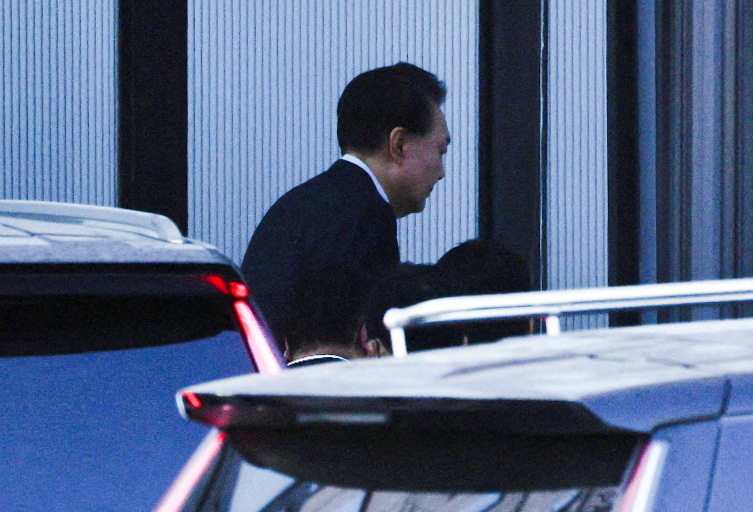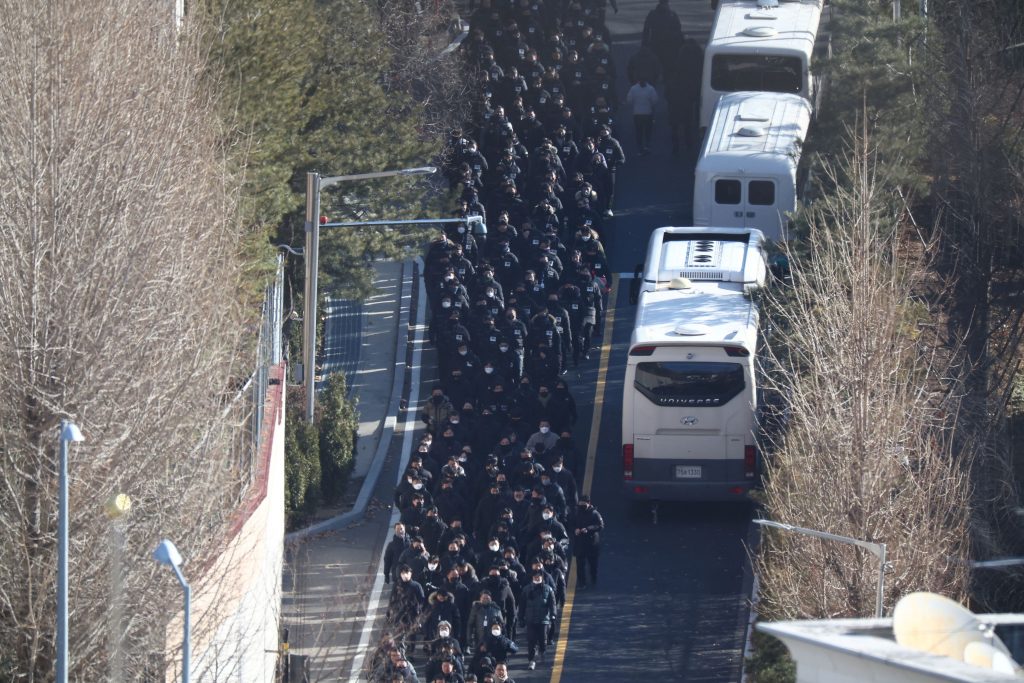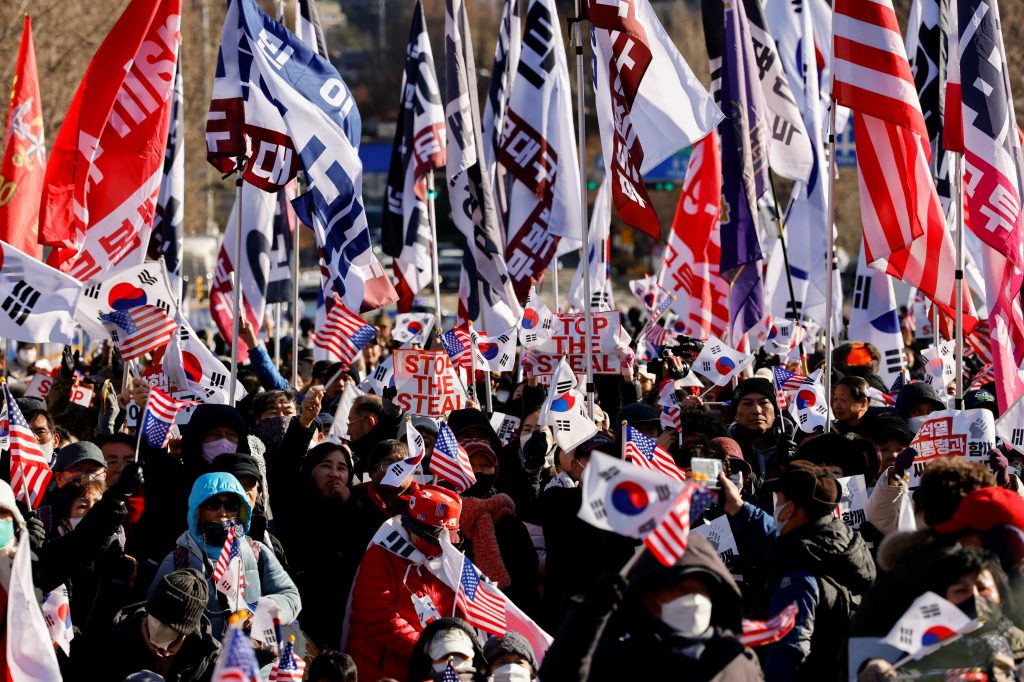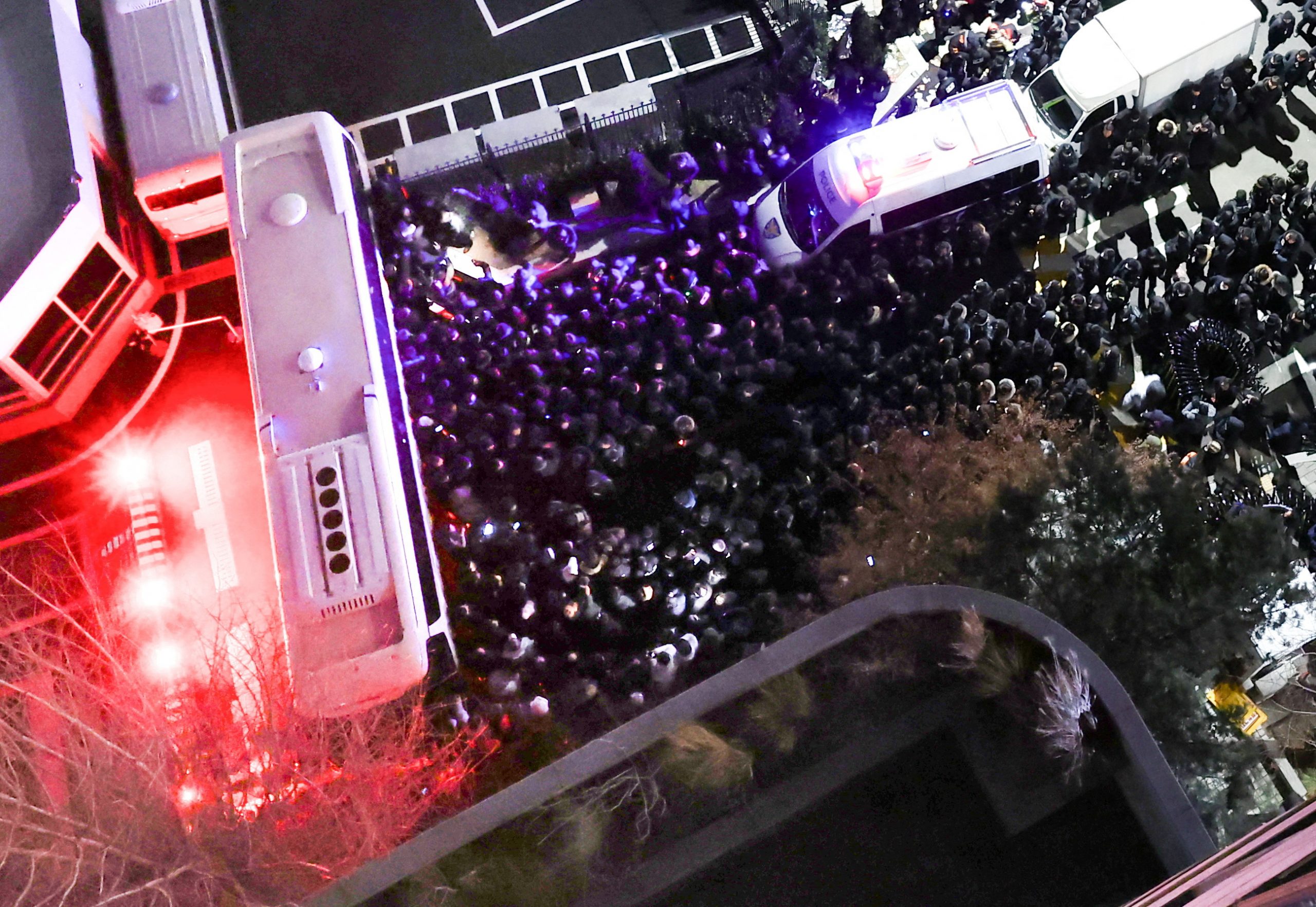South Korean authorities have arrested impeached President Yoon Suk Yeol on charges of insurrection, marking the first-ever arrest of a sitting president in the nation’s history. The arrest followed weeks of political turmoil after Yoon’s controversial declaration of martial law in December, which led to his impeachment by lawmakers.
According to Reuters, Yoon, who had been holed up at his heavily guarded hillside residence since his impeachment, agreed to comply with the arrest to prevent violence.
Over 3,000 police officers surrounded Yoon’s residence early Wednesday to enforce the arrest. A tense standoff ensued before Yoon voluntarily left in a motorcade, avoiding clashes between his supporters and the authorities.

South Korea’s impeached President Yoon Suk Yeol arrives at the Corruption Investigation Office for High-ranking Officials (CIO), in Gwacheon, South Korea, January 15, 2025. KOREA POOL/Pool via REUTERS SOUTH KOREA OUT. NO COMMERCIAL OR EDITORIAL SALES IN SOUTH KOREA. TPX IMAGES OF THE DAY
“I decided to respond to the CIO’s investigation—despite it being an illegal investigation—to prevent unsavory bloodshed,” Yoon stated, referencing the Corruption Investigation Office for High-ranking Officials (CIO), which is leading the probe.
The arrest warrant against Yoon accuses him of being the “ringleader of insurrection” for his martial law declaration on December 3, which shocked the nation and disrupted Asia’s fourth-largest economy. His legal team has called the warrant invalid, claiming it was issued by a court in the wrong jurisdiction and arguing the investigating body lacks proper authority.
Authorities now have 48 hours to interrogate Yoon before deciding whether to seek a longer detention or release him. Meanwhile, the Constitutional Court is deliberating whether to permanently remove him from office or restore his presidential powers.
Yoon’s declaration of martial law cited unsubstantiated claims of election fraud and sparked widespread disapproval, with polls showing a majority of South Koreans supporting his impeachment. Despite this, the events have energized his base, particularly within his conservative People Power Party (PPP).

Police officers and investigators of the Corruption Investigation Office for High-ranking Officials leave the official residence of impeached South Korean President Yoon Suk Yeol, in Seoul, South Korea, January 15, 2025. REUTERS/Kim Hong-Ji
Recent polls indicate a narrowing gap between the PPP and the main opposition Democratic Party, with PPP support climbing to 40.8%, close to the Democratic Party’s 42.2%.
The arrest sparked intense reactions, with live feeds capturing police deploying ladders and wire cutters to breach Yoon’s compound. Pro-Yoon protesters, many wrapped in foil blankets to combat sub-zero temperatures, rallied outside his residence, waving flags with slogans such as “Stop the Steal,” echoing his claims of election fraud.

Impeached South Korean President Yoon Suk Yeol’s supporters rally near the Corruption Investigation Office for High-ranking Officials, following his arrest, in Gwacheon, South Korea, January 15, 2025. REUTERS/Kim Soo-hyeon
Kim Woo-sub, a 70-year-old retiree among the protesters, voiced support for Yoon, drawing parallels to former U.S. President Donald Trump. “Election fraud is something they have in common, but also the U.S. needs South Korea to fight China,” Kim said.
The arrest has drawn global attention. The U.S. National Security Council reiterated its commitment to working with South Korea and urged adherence to constitutional principles. Meanwhile, Japan’s Chief Cabinet Secretary Yoshimasa Hayashi noted that Tokyo was closely monitoring the situation “with particular and serious interest.”



